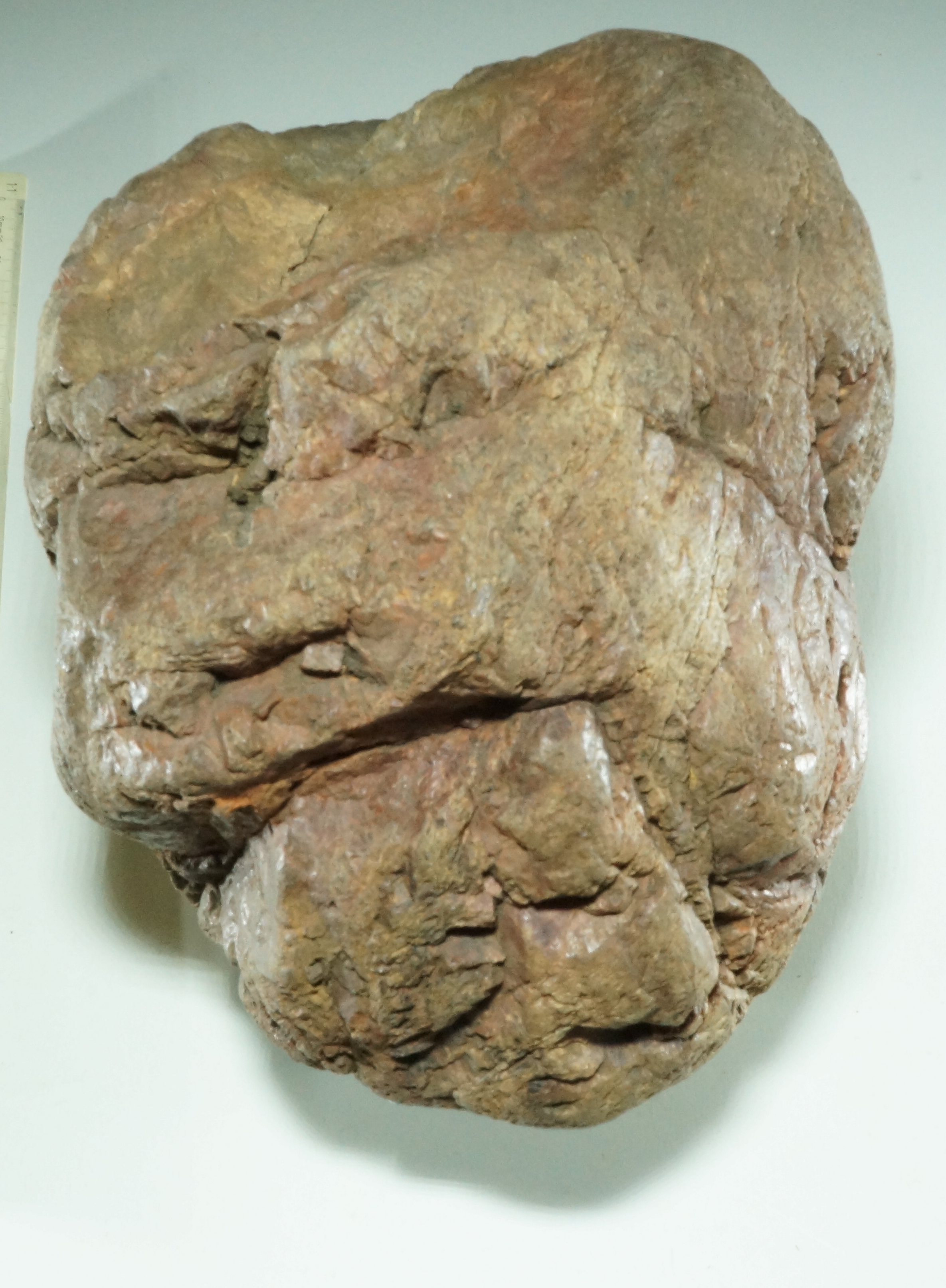
1. Cultural Background
For many years now, reference to the psychology of amae has helped me better understand Kafka. This is especially true with regard to elements and passages in Kafka's works that are difficult to understand from a traditional Western perspective and which, accordingly, are frequently misunderstood and misinterpreted. It seems to me that such misinterpretations flow from a cultural bias: an often one-sided view of the human personality that emphasizes the free, the responsible, and the independent. In such a narrative, human growth constitutes a mere process in pursuit of this aim. Kafka, however, has his doubts about this view of man and emphasizes other, seemingly opposing, elements of the human psyche. These can, in many cases, be more finely understood from the point of view of Japanese culture and mentality, and the psychology of amae appears to be particularly helpful for this purpose. In order to understand Kafka's situation and to realize why he had such a different view of the human personality it will be necessary to briefly discuss the background of his time, his personal situation and the aim of his writing.
European society at the end of the nineteenth century was characterized by antagonistic tendencies. There was, on the one hand, the majority of bourgeois society which optimistically believed in progress and tended to regard the age as the climax of European history. On the other hand, there were many artists and intellectuals who raised serious doubts about such
49
claims and who saw mainly decline and the end of a long tradition of European culture. To them, many traditional values had lost their meaning and Nietzsche's radical appeal for a "transvaluation of all values" was widely accepted. Since around the turn of the century, Vienna, and to a lesser degree Prague, became centers of vigorous and creative attempts at renewal by numerous artists and thinkers. The names of Mahler, Schönberg, Freud, and Wittgenstein may stand here for many others. Writers were in a peculiarly difficult situation, for the very language which they employed in their search for new ideas and forms of expression was deeply penetrated by traditional concepts and values. Thus, the crisis of culture around the turn of the century was for them, above all, a crisis of language. In various ways they tried to overcome this crisis through the creation of new forms of linguistic expression.
Kafka felt this crisis more deeply than most others, partly due to his personality and his family situation. Also he was more radical in his search for new forms of literary expression. He gives literature the double, and almost impossible, function of both destroying our preconceived ideas and traditional patterns of thought and, at the same time, a new indexicality - a pointing towards something from out of the very ruins of this destruction. This is what makes his language so difficult and what has given rise to so many misinterpretations of his texts, especially in the earlier period of Kafka criticism. Beginning with Kafka's closest friend, Max Brod, many interpreters have too easily and often arbitrarily related elements in Kafka's texts to traditional concepts and values, instead of first carefully analyzing the text. Only gradually, the need for a thorough study of the texts themselves and their distinctive features has come to be realized. It has become increasingly clear that the conventional categories and methods of interpretation are, for the most part, no longer applicable to Kafka's works.
The basic problem that every reader of Kafka's texts encounters has been defined by Peter U. Beicken as follows:
To a specific, mostly traditional, canon of questions Kafka does not respond, contrary to one's expectations. These are questions aiming at50universal categories, general concepts, historical perceptions and areas of the history of thought, and in all these cases the question of the meaning of human existence plays a major role. Since the work refuses to give answers, at least clear and unequivocal answers, the early critics defined their positions in a way that corresponded rather to the needs and forms of understanding of the interpreters.2)
The difficulty of Kafka's texts is not only a problem of his language. There is his radical and uncompromising search for truth that destroys the illusions and ideologies we have created around us. Kafka tries to describe "simply" what is there and to come as close as possible to the reality of human existence. Kafka's personal attitude in this respect has been described with astonishing intuition by Milena Jesenká, who probably understood him better than any other person in his life:
"Surely the fact is that all of us, to all appearances, are able to live because we have sometime or other fled to a lie, to blindness, to enthusiasm, to optimism, to a conviction, to pessimism or the like. But he has never fled into a sheltering asylum, into none. He is absolutely incapable of lying as he is incapable of getting drunk. He is without the least refuge, without shelter. Therefore he is exposed to everything from which we are sheltered. [.....] He is not a man who fabricates his asceticism as a means to an aim, he is a man who through his terrible clear-sightedness, purity and incapacity for compromise is compelled to asceticism."3)
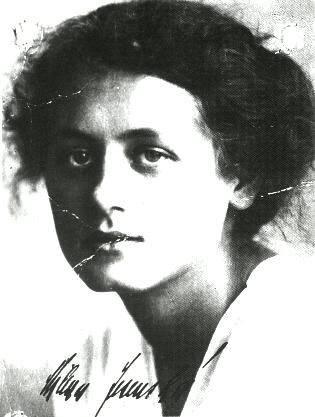
One hesitates to call this radical, uncompromising attitude an unconditional commitment to truth, though this is probably what would correspond to it in traditional terminology. Kafka himself, in his Diaries, speaks of his wish to "raise the world into the pure, the true, and the immutable" through his writing.4) In Kafka's works, unconditional commitment to truth means in the first place doubts, distrust and radical criticism with regard to traditional values and their dissolution. It also enables him to transcend the limitations of traditional language and to become aware of elements of the hu-
51
man personality that are not, at least not explicitly, contained in traditional German language. His multilingual background seems to be an additional source for his ability to expand his range of expression.
One such element of the human personality that usually goes unrecognized in a German context but which can be found in Kafka will be discussed in this paper, namely the psychology of amae. It must be seen in a wider context as part of Kafka's attempt to reverse the mainstream of European thought and its basic values. This is particularly obvious in a number of shorter pieces of prose in which he explicitly refers to classical topoi of the European tradition like the Tower of Babel, Ulysses, or Alexander the Great. A typical example is his short sketch Prometheus. The figure of Prometheus, particularly as seen in Goethe's well-known poem, is representative of the tendency in European culture to emphasize the critical and enlightened, self-reliant and free individual and his creative potential. In contrast to this tradition, Kafka does not mention Prometheus' achievements at all but describes the course of his punishment. His Prometheus is completely passive. He becomes one with the rock to which he is clamped and disappears at the end, together with all the other activities of the gods and the eagles who feed on his liver. What remains in the end is not the 'I' as in Goethe's Prometheus, but the inexplicable truth of the mass of rock to which everything seems to return eventually.
It seems to me that Kafka points back to a pre-mythological stage where the sight of mountains, old trees and other extraordinary natural phenomena filled people with awe and veneration. It was a time when people felt part of a greater whole accepted for what it was, without trying to explain it. Myths and legends emerged when people started to reflect on these phenomena. By reversing the whole tradition that began there Kafka draws our attention to a basic human attitude that many in our modern world, particularly in the West, no longer perceive. It is, however, alive in many Eastern and other non-European cultures. In Japan, one may locate it especially in the Shintō tradition.
Kafka's interest in China seems to point into the same direction. However, unlike many of his contemporaries leaning toward exoticism and es-
52
capism, Kafka limits himself to what he can observe in the world around him or find in himself as basic human possibilities. What he describes are not, like in exoticism, counterworlds imagined in opposition to the traditional European world. He describes the world around him and in him, employing modes of expression and insights that he would partly find outside the mainstream of European culture. Some of the phenomena that he obviously regards as relevant may, however, be unrealized or even suppressed in the Western tradition, whereas they are foregrounded in many Eastern cultures. This is the reason why a number of important elements and basic attitudes in Kafka may be grasped more easily and evaluated more quintessentially if they are interpreted from the perspective of these Eastern traditions.
I first came upon this possibility when I read Amae no Kōzō and began to understand the Japanese phenomenon of amae as well as the mentality behind it. I was, at the same time, reading Kafka. It struck me then that there are many passages in Kafka's works and biographical materials which correspond directly to the mentality of amae and which I can understand from this perspective. It seemed to me to reveal why and how most Kafka scholars had misunderstood these texts, namely because they relied on values, concepts, and categories that Kafka questioned or even rejected in these passages.
For years now I have discussed these questions in my classes on Kafka and I have found the reference to the psychology of amae quite helpful for students to understand and appreciate Kafka's works. Especially those students with experience abroad often demonstrate a remarkable insight and I have learnt much from them. One student in my General Education class last year made a particularly relevant observation when he pointed out that amae can not only be found in Kafka's texts as such but that it obviously also plays an important role in the relationship between the author and his readers. It is this aspect that I intend to elaborate in this paper.
2. A Letter to Felice
Compared to his relatively scarce literary production, Kafka has left a
53
wealth of biographical material: diaries, letters, notes that fill several volumes. Most of these, however, are not documents that would provide objective information about his life, particularly his inner life. Rather they must be seen as being very close to his literary works. Parts of his diaries directly led to literary creations and a document like the famous Letter to His Father is often classified among his fiction. The close relationship of his diaries and letters to his literature is also demonstrated by the fact that both were mostly produced at the same time. They emerged during relatively short periods of enormous creative energy usually induced by his attempts to marry. Thus, Kafka's biographical documents must be interpreted in a way similar to the interpretation of his fiction.
There is one important difference, however. The biographical material usually refers to a specific situation, to concrete events, facts, or persons. The material helps us link Kafka's reaction to life events and the process that eventually led to his literary creations. In this respect, his letters are particularly important when we consider the possibility of a relationship between Kafka and his readers in which an amae-like attitude could play a role. Are there any indications in his letters?
I will take up one relevant example. It is a passage in a letter to his fiancée, Felice Bauer, which he regarded as so important that he also noted it in his diary and quoted it in a letter to his friend Max Brod, where he even proposes it as his epitaph.
"When I examine my ultimate aim it shows that I do not actually strive to be good, to answer to a supreme tribunal. Very much the opposite. I strive to know the entire human and animal community, to recognize their fundamental preferences, desires, and moral ideals, to reduce them to simple rules, and as quickly as possible to adopt these rules so as to be pleasing to everyone, indeed (here comes the inconsistency) to become so pleasing that in the end I might openly act out my inherent baseness before the eyes of the world without forfeiting its love - the only sinner not to be roasted. In short, my only concern is the human tribunal, and I would like to deceive even this, and what's more without actual deception."6)54
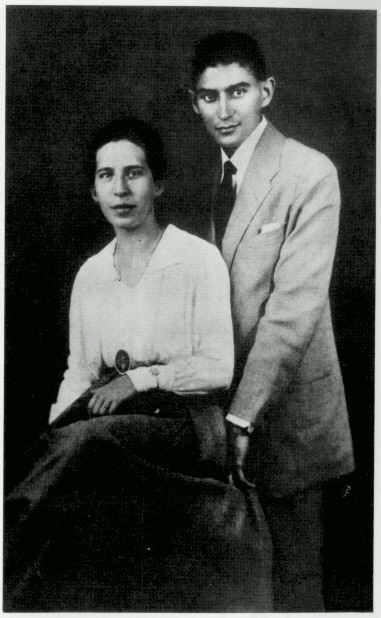
The fact that Kafka copied this text twice shows how important it was to him. This is also indicated by the expression "ultimate aim." It seems that Kafka here reveals an essential element of his view of life. Since he takes the passage out of the context in two cases we may assume that he regards it as self-contained. Thus one may interpret it without reference to the context.
In the first sentence, Kafka denies any highest moral authority ("a supreme tribunal") and any idea of absolute moral values ("strive to be good"). Rather, and this he sees as "very much the opposite," he wants to be "pleasing to everyone." What matters to him are not universal and absolute values but human relationships. This is clearly opposed to the mainstream of the European tradition as it is for instance expressed in Kant's categorical imperative. It closely resembles, however, many elements of Japanese society and culture, especially in the context of amae which is expressed in Kafka's wish to please everyone. In Japanese one could use here the term toriiru which Takeo Doi lists among the vocabulary of amae. Kafka seems to allow the others to amaeru by responding to their wishes but what he really wants is to be allowed to amaeru himself.
The psychology of amae is even more obvious in the following "to become so pleasing that in the end I might openly act out my inherent baseness before the eyes of the world without forfeiting its love." Presuming upon everyone's indulgence he wishes to behave ki-mama or even waga-mama, both central notions of the psychology of amae. The word "baseness" in the English translation does not render the exact meaning of the German "Gemeinheiten" which means "mean acts, dirty tricks" and is sometimes used half-ironically, especially with regard to children, implying that one has already half forgiven it or does not take it so seriously. The clause "the only sinner not to be roasted" ironically refers to the religious concepts of sin and hell and indicates the rejection of the idea of a father god who mercilessly condemns the sinner (Kafka's father, like so many fathers in bourgeois society, being the concrete representative of such a father-god). What Kafka longs for instead is the motherly world of amae where even the greatest sinner is embraced by warm, indulgent love, the "love of the world" which he does not want to forfeit.
55
What then does Kafka mean at the end when he speaks of his deceiving without (actual) deception (the word "actual" is not in the German original)? His deceiving should correspond to what was said above with reference to toriiru: he appears to respond to the wishes and preferences of the "human and animal community" but what he really wants, and in this sense he seems to deceive them, is to "act out my inherent baseness." He does not conceal this, however. He clearly states it. In this sense he does it "without deception." There is also a considerable amount of self-deception in his hope that he might be able to know the entire human and even animal community and that he could please all of them so he would be the only sinner not to be punished: the many conditions he attaches show the impossibility of his wish being granted. They also show that he knows this. Thus he deceives himself, "and what's more without actual deception."
At this point, we should also consider the context of this passage in Kafka's letter to Felice. The letter is a final, desperate attempt by Kafka to have his fiancée accept him as he is, with all his contradictions and apparent whimsicality. He points out that he has always tried to be truthful but then continues: "I am a mendacious creature; for me it is the only way to maintain an even keel, my boat is fragile." Then follows the passage quoted above, after which he clearly states: "You are my human tribunal." Later, he mentions his sickness and that from it he now partly "derives the kind of immense support a child gets from clinging to its mother's skirt." Imagining that he leans on her shoulder, part of him "feels sure of universal love, or of that of its female representative assigned to him." As soon as he feels sure of that his "atrocious baseness" begins. But if she would ask why he "put[s] up a barrier" he would be at her feet again.7) In this way he begs and rejects, trying to draw her near and erecting barriers. His arguments are full of inconsistencies, they "deceive [.....] without deception." However, from the point of view of the psychology of amae it seems to me, the aim of his letter can be understood: he wants to be loved and accepted unconditionally, in spite of all his contradictions, hoping to be able to presume on the other's good will.
56
But Felice was not the person to respond to Kafka's amae. With his friend Max Brod, however, Kafka seems to have been better off. The lighthearted and ironic way in which he introduces the above passage in a letter to Brod indicates this: "What do you say about this marvelous piece of self-knowledge [.....]? It would be a good epitaph."8)
In his family, Kafka probably did not enjoy many opportunities to have his wish to amaeru gratified. This seems to be especially true with regard to his father, as the Letter to His Father indicates.
3. The "Letter to His Father"
This most crucial biographical document was written by Kafka in 1919, two years after the letter to Felice mentioned above. It was intended to be a real letter but actually was never delivered to Kafka's father. For a letter, its many-layered argumentation and complex structure is astonishing, and Brod actually published it among Kafka's literary works. I will here point out only those elements that relate to the psychology of amae.
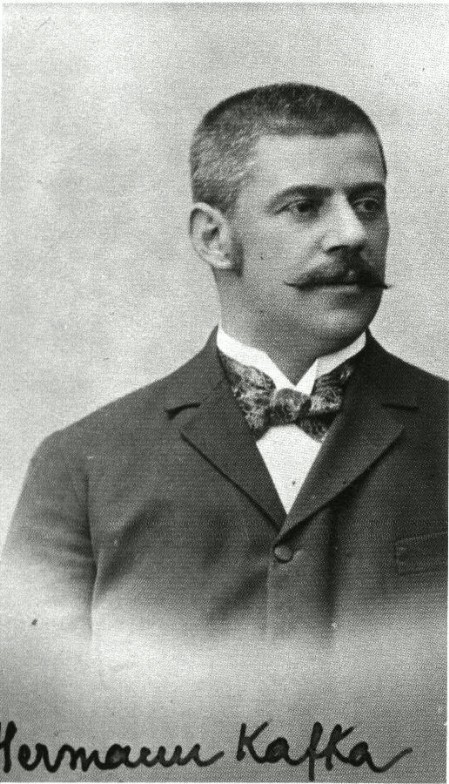
One of these psychological elements is the constant reference to his dependence on his father. The personality of his father seemed so powerful to him that he always felt small, weak, timid, full of shame and guilt. He gratefully remembers the obviously rare incidents where his father showed love and concern towards his son:
[.....] during my last illness, you came tiptoeing to Ottla's room to see me, stopping in the doorway, craning your neck to see me, and out of consideration for me only waved your hand to me. At such times one would lie back and weep for happiness, and one weeps again now, writing it down.9)
Also, in the same context, he mentions that his father has "a particular beautiful, very rare way of quietly, contentedly, approvingly smiling, a way of smiling that can make the person for whom it is meant entirely
57
happy."10) But then he almost sarcastically points out that he cannot recall its ever really having been his lot in his childhood.
That Kafka's wish to be loved and cared for like a child was mostly not gratified in his childhood may be the reason why this wish is still so strong even in the adult. In his Diaries he several times points out his need for comfort and his wish to be cared for, and how dependent this makes him. As late as 1922 he notes: "The power comfort has over me, my powerlessness without it. [.....] it [comfort] creates itself about me of itself, or I achieve it by begging, crying, renouncing more important things.11)
In the Letter to His Father Kafka wavers between his wish for independence and his feeling of dependence, between rejection of his father and his wish to be loved and cared for. Over many pages he expresses his higaisha ishiki, demonstrating how he has suffered under his father, but then hastens to point out that his father is not to be blamed for it. Writing is, for Kafka, an attempt to create a realm of his own outside the realm of his father. He thus even welcomes the fact that his father dislikes his writing and hails the arrival of a new book with his "soon proverbial [.....]: 'Put it on my bedside table!'"12) And yet Kafka is hurt by it as his words clearly reveal. A few lines later he confesses: "My writing was all about you; all I did there, after all, was to bemoan what I could not bemoan upon your breast."13)
This is an important statement. I see in it a clear expression of amae. If this is true then not only the Letter to His Father, as our analysis has shown, but also Kafka's other writings should be an expression of amae towards his father. Before we discuss this further we should consider several statements in the concluding part of the Letter. Kafka there presents his case as he thinks his father would see it by letting him say:
What you are in fact set upon is living entirely on me. I admit that we fight which each other, but there are two kinds of fighting. There is chivalrous fighting, in which the forces of independent opponents are measured against each other [.....]. And there is the fighting of vermin,58which not only sting but, at the same time, suck the blood, too, to sustain their own life. [.....] You are unfit for life; but in order to be able to settle down in it comfortably, without worries and without self-reproaches, you prove that I have deprived you of all your fitness for life and put it into my pockets. What does it matter to you now if you are unfit for life, now it is my responsibility, but you calmly lie down and let yourself be hauled along through life, physically and mentally, by me.14)
This can also be seen as a description of amae, but by someone who shows not the least sympathy for it. For Kafka's father, like for many in the society of his days, life is a fight and struggle of independent, strong individuals who know what their responsibility is. There is little room in this view of man for something like amae, for mutual emotional dependence and the comfort of sheltered human relationships.
That such a man cannot respond to Kafka's wish to amaeru is obvious. Kafka's description of his father with its many apparent exaggerations and more or less disguised reproaches can be seen as an expression of his disappointed amae, driven perhaps by the hidden wish that, after all, it may not be true and that his father may perhaps respond to his wishes. Thus this description, too, could be seen as a form of amaeru. But Kafka probably saw his situation too clearly, as the whole Letter shows, to believe in such a possibility. That may be the reason why eventually he did not send the Letter to his father.
If the Letter is no longer intended to be read by his father then it follows that Kafka's amae is now directed towards the reader. The same applies to Kafka's other writings which he describes, as we saw, as bemoaning what he could not bemoan upon his father's breast. This aspect I will now briefly consider with regard to Kafka's Metamorphosis (Die Verwandlung).
It should not be forgotten, however, as mentioned above, that Kafka's diaries and letters are often close to his fiction. Thus, they are not necessarily a direct expression of his thoughts and feelings but, at least partly, already literary fiction, an attempt to give a specific form to a basic human experience. So we have to distinguish between the text, or the "Kafka" of
59
the text, and the "real" Kafka whose personality may be revealed only partly in the text. This, of course, applies even more to his literary works.
4. Metamorphosis
An example of the close relationship between Kafka's biographical and his literary writings can be found in the above-quoted passage. There, Kafka has his father call him an "Ungeziefer (vermin)" the same term that is used for the insect in Metamorphosis. The reproach that he "calmly lie[s] down" and lets his father bear the responsibility also closely resembles the situation in Metamorphosis. In Wedding Preparations in the Country, one of Kafka's earlier stories, Raban (an obvious acronym for Kafka) intends to go to the country to meet his fiancée but is afraid of the trouble this, as well as life in general, may cause; so he thinks:
'And besides, can't I do it the way I always used to as a child in matters that were dangerous? I don't even need to go to the country myself, it isn't necessary. I'll send my clothed body. [.....] For I myself am meanwhile lying in my bed, smoothly covered over with the yellow-brown blanket, [.....] As I lie in bed I assume the shape of a big beetle [.....]15)
This is the childlike wish to stay warmly and comfortably wrapped up in one's bed and the refusal to confront the cold and unfamiliar world outside. The element of amae in it is apparent. One can easily imagine how the situation at the beginning of Metamorphosis arose in Kafka's mind in a similar way. We also have evidence in Kafka's Letters to Felice that points in the same direction. During the period when Kafka wrote Metamorphosis he sent numerous letters to his fiancée. In those messages, his mental state at the time as well as the whole process of writing the novel are reported in detail.
According to the letters, Kafka was in a miserable, sometimes desperate mood, and even considered suicide. He felt overburdenened by his work and the demands of the family. There are, however, indications that the situation was not that desperate; simply the fact that he was so productive dur-
60
ing that time clearly demonstrates this. Thus, his constant complaints rather seem to be, at least to some degree, an expression of amae in the form of higaisha ishiki. This is also indicated by the sense of relief he feels after having written them. As he says in a letter to Max Brod: "The nice thing about such letters is that, at the end, they become more and more false in the direction of their beginning. I feel now much more relieved than at the beginning."16) It is interesting to note that he dictates this letter to his sister Ottla while he stays in bed, he remarks, "out of laziness".17)
Metamorphosis was born out of similar situation. On 17 November, 1912 he writes to Felice: "I was just too unhappy to get up." Later he mentions "a short story that occurred to me in bed in my misery, and now troubles me and demands to be written."18) Elements of amae can already be found in the initial scenes of the novel and continue to be present up to to the final scene when Gregor Samsa dies, seemingly reconciled with his family. These elements constitute one layer in this complex story and seem to be crucial for its understanding. I have discussed the various forms of amae in Metamorphosis elsewhere in detail.19) I will, therefore, present here only a brief summary of my findings.
The body of the insect into which Gregor is transformed can already be seen as an expression of amae. On the one side, he is weak, feeble, and helpless like a child. Literally 'throwing himself at their feet' he begs the other family members not to exclude him from their circle. On the other side, his hard, armour-plated back can be regarded as an expression of disappointed amae. He turns his back on others, feigning indifference, and becoming sulky. So great is his dependence on his family that he even leaves it to their judgement to decide whether he has been transformed or not, and the fact that he has become an insect does not frighten him as long as that means that the responsibility rests with them and that they care for him. The more they neglect to do the latter the more displays he his frustra-
61
tion and disappointed amae. However, even at the end when his family completely deserts him he imagines that through his death he is reunited with them in mutual love.
In the course of the story, the more Gregor is excluded from the warm family circle the more can we find various forms of amae between the family members. The father, especially, takes over the role that Gregor would like to play presuming on the love of his wife and daughter who, in turn, willingly respond to his amae.
Clearly, Kafka was thinking of his own father when he composed the story. As a whole, it may be understood as an expression of amae towards his father, lamenting "what I could not bemoan upon your breast," the expression he uses in the Letter to His Father.20) As we saw above, however, Kafka could hardly expect a positive response from his father. As a consequence. Kafka's amae in Metamorphosis is directed towards the reader in general. Given the very personal character of an amae-relationship it is hardly astonishing that Kafka very much liked to read his story to people who were close to him. At the time he wrote Metamorphosis, the person closest to him was, of course, his fiancée Felice. He keeps her informed of the progress of the work on his "exceptionally repulsive story", the nights never being "long enough for this business which, incidentally, is highly voluptuous."21) A week after the announcement of the beginning he writes:
I don't want to send you anything to read. I want to read it to you. Yes that would be lovely, to read this story to you, while I would have to hold your hand, for the story is a little frightening. It is called Metamorphosis, and it would thoroughly scare you, you might not want to hear a word of it [.....]22)
It seems to me that the "exceptionally repulsive" and "frightening" elements in the story also relate to what, in his last letter to Felice quoted above, he called his "baseness" that he would like to "openly act out" without forfeiting the love by which he is held."23) If this link is not correct, it would be
62
difficult to understand why he enjoys so much reading this "repulsive" story to others. A few months after finishing it he writes, again to Felice, about an evening with Max Brod:
Just a few words, dearest. A pleasant evening at Max's. I read myself into a frenzy with my story. But then we let ourselves go, and laughed a lot. If one bolts the doors and windows against the world, one can from time to time create the semblance and almost the beginning of the reality of a beautiful life.24)
Thus, in this scene of an experience rare in Kafka of a small protected world of love and friendship Kafka can indulge in amae. There he can reveal his most intimate feelings and "baseness." At the same time, he can thus free himself from it through humour, even laughter.
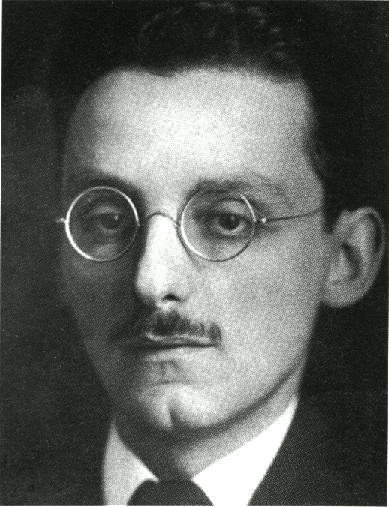
Notes
1. Revised version of a paper presented at the Symposium "Amae" de Bungaku o toku, Tokyo University, December 10-11, 1995. A Japanese translation was published in "Amae" de Bungaku o toku, ed. by S. Hirakawa and A. Koyano (Tokyo: Shionyō-sha, 1996), pp. 278-302. References to the theory and terminology of amae are based on: Takeo Doi, The anatomy of Dependence (Amae no kōzō) (Tokyo; Kodansha International, 1973).
2. Peter U. Beicken, Franz Kafka: Eine kritische Einführung in die Forschung (Frankfurt a. M.: Athenäum Fischer, 1974), p. 100 (my translation).
3. From a letter to Max Brod quoted by him in his Franz Kafka: Eine Biographie (Frankfurt a. M.: Fischer, 1962), pp. 281-282 (my translation).
4. The Diaries of Franz Kafka, M. Brod, ed. (Harmondsworth: Penguin, 1975), p. 387.
5. [...]
6. Letters to Felice, E. Heller and J. Born, ed. (Harmondsworth: Penguin, 1974), p. 654.
7. Ibid., pp. 654f.
8. Briefe 1902-1924, M. Brod, ed. (Frankfurt a. M.: Fischer, 1975) p. 178 (my translation).
9. Wedding Preparations in the Country and Other Stories, M. Brod, ed., (Harmondsworth: Penguin, 1978), p. 43.
10. Ibid., p. 43.
11. The Diaries ....., p. 414.
12. Wedding Preparations ....., p. 60.
13. Ibid., p. 60.
14. Ibid., p. 74.
15. Ibid., pp. 10f.
16. Briefe ....., p. 111 (my translation).
17. Ibid.
18. Letters ...., p. 151.
19. See my Nihon kara mita mō hitori no Kafuka. (Tokyo: Dōgaku-sha, 1988), pp. 18-52 and also "Images of Amae in Kafka," in Humanities 15 (1980), pp. 75-83.
20. Wedding Preparations ....., p. 60.
21. Letters ....., p. 165.
22. Letters ....., p. 164.
23. Letters ....., p. 654.
24. Letters, ..... p. 322.

